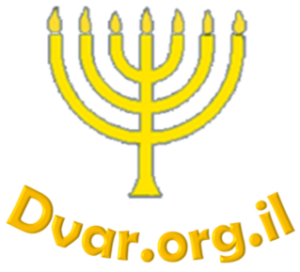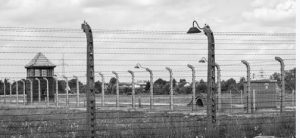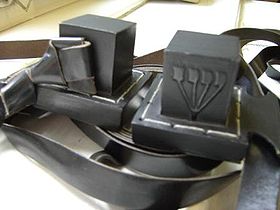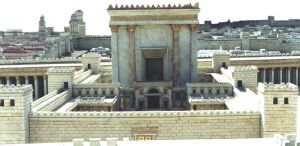Homage to My Father’s Life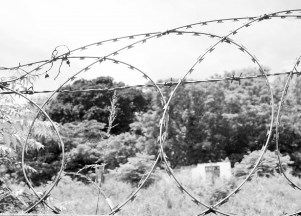
Homage to My Father’s Life
My father Menachem Mendel Reutner was born in 1903, the youngest of three children, to Chaim and Pessia (née Adler) in the village of Dulovo in the region of Carpatho-Rus. This region, situated in central Europe across the Carpathian Mountains, is sandwiched between Romania, Slovakia and the Ukraine and was at the time an autonomous state of the Austro-Hungarian Empire. Because his father was a manager for the estate of a local aristocratic family which had owned a large expanse of land in the area, Menachem Mendel had grown up involved in his father’s agricultural activities. He learned to care for live stock and ride horses, to recognize the optimal harvesting time for the ripening fruits as well as perform all manner of farming operations in the count’s great orchards. Although the family was observant of halacha (Jewish law) which requires children to receive a solid Jewish education, Menachem Mendel’s schooling was negligible because he was obliged to help his father with the work on the immense estate. Learning to read and write in his native tongue Yiddish, recite the daily prayers, recognize the secular alphabet and some basic arithmetic were all that he accomplished academically. The tiny Jewish community in Dulovo did not have the means of providing a young boy with any kind of meaningful education either in Torah or in secular subjects.
Dulovo is now part of the Ukraine. It is a small village situated in a broad valley in the foothills of the Carpathian Mountains, not to be mistaken for Dilove which is a smaller village in a gorge further up the mountains. Confusingly, my father referred to his birth place as Dilov in the manner of Hungarian style Yiddish, substituting ee sounds for oo sounds and truncating trailing vowels.
When Menachem Mendel was eleven and a half the First World War broke out. Schooling opportunities became even scarcer as the Austro-German and Russian troops fought each other across the region and the Ukrainian armies fought in an attempt to forcefully annex it. In 1919, the Austro-Hungarian Empire was broken up into numerous independent republics, aristocratic status and possessions were abolished and thus, Chaim Reutner’s position as estate manager ceased to exist. Menachem Mendel, aged sixteen, had no choice but to leave his little village for the provincial city of Khust, some 40 kilometers to the west, where a substantial Jewish community existed and thrived and where his two older brothers lived. At age seventeen, when Carpatho-Rus became a semi autonomous part of the newly independent state of Czechoslovakia, Menachem Mendel joined the Czechoslovak army. The state’s founding fathers were devoted to democracy and the notion of equality amongst the various ethnic groups in the country, including the Jews. Some Jews, who were moved by this development, involved themselves in the national life including serving in the military. In my father’s case, it was partly that and partly an economic necessity in light of the conditions that prevailed after the war which compelled him to join. In the Army he learned military bearing, to handle a rifle and to “goose step” march – as was the custom in those days when passing in review before an important leader. He was a member of the troops chosen to pass in review before, and salute Czechoslovak president Tomas Masaryk on his visit to the area. Throughout his life, Menachem Mendel had maintained a great affection for this democratic personality and his equality principles.
A major accomplishment during his military service was remaining observant of Jewish law in spite of the great difficulties implied in such an undertaking. He had to rise earlier than the other troops to put on the tefilin and say the morning prayers and, naturally, he had to stay away from non-kosher foods. Thankfully, military policy in the young democracy had made it possible for minority soldiers to observe their traditions. On Shabbat, Jewish soldiers were permitted to go to town to attend synagogue services and they were invariably invited for the Sabbath meal into the homes of local Jewish residents. My father would typically visit with his brothers and their families.
After being honorably discharged in 1923, Menachem Mendel settled in Khust where he married and had three children, two sons and a daughter. He supported himself and his family, capitalizing on his agricultural background by running a wholesale fruit supply business. He would buy up entire crops in the Khust area – well known to this day for its great variety and quality of fruits – and have them transported to the big cities in the area such as Bratislava, Budapest, Vienna and Prague. Naturally, he was required to take business trips to those cities and thus came into contact with the historic Jewish communities there. In Prague, for example, he visited the old synagogue where the remains of the golem of old Rabbi Lurie, commonly remembered as maharal, were believed to have been secreted in the attic, as well as the ancient Jewish cemetery where so many scholars and other notable personalities were laid to rest. Khust, the Jewish community in which he thrived, too, was one of the most established in central Europe having had a succession of famous rabbis – Moshe Schick, Amram Blum, Moshe Grunewald; and in my father’s own time, Joseph Duschinsky who later would become Chief Rabbi of the orthodox community in Jerusalem. Jews made up a significant part of the population, most of the businesses and artisan shops in the town belonged to Jews, among them banks, factories, and flour mills. Additionally, there were Jewish civic officials and professionals such as doctors, lawyers and pharmacists. Menachem Mendel and his family lived relatively comfortable lives, what in Yiddish is referred to as balebatish. It occurred during his stay in Khust that both of his parents died.
The political climate began to change for the worse with the annexation of Slovakia by the Kingdom of Hungary at the verge of the Second World War in 1939. Hungary was part of the Nazi Axis and they soon instituted laws against the Jews which made life increasingly difficult and humiliating. By the summer of 1941, Jews began to be rounded up and deported across the border into the Ukraine which was then controlled by the Nazi’s, later those deportees were systematically exterminated by the SS.
Although talking about it was painful for him, I often regret not having asked my father for the details of his life during those difficult times. I have no information on his and his family’s whereabouts between the start of the war and the summer of 1943 and no specific information at all about the fate of his wife and sons.
In 1943 he was living in Budapest. At that time, in the Hungarian capital, conditions for Jews had become dire. Since they were forbidden to do business with the general population or work for a gentile firm, the sources of self- sustenance were eliminated for most; in addition to the thousands of refugees that sought safety in the capital. There were some Jewish charities that ran soup kitchens, but with the scarce food and the long lines only desperation would urge one to turn to them. Having disguised his ethnicity and changed his family name to that of his mother’s maiden name which was less recognizable as Jewish, Menachem Mendel avoided the soup lines by going into hiding, working for tips digging graves at a Christian cemetery, sleeping in makeshift accommodations for as long as the weather was warm. Apart from his desire for self-reliance, Menachem Mendel’s concealment was induced by his need to avoid being conscripted into the Hungarian Army, as many Jews were. For Jews, ‘military service’ was in actuality a code word for slavery since the conscripted were organized into work brigades and forced to do back-breaking hard labor and were expected, in battle, to throw themselves onto barbed wire so that foot soldiers could step over them when charging the enemy; just earlier that year, some 50 thousand of them were involved in the defeat suffered by Hungarian forces in the disastrous Battle of the Don on the Stalingrad front. Between the callous disregard of their lives by the Hungarians – they were given hazardous assignments while medics did not bother to treat them – and the Russians viewing them as regular enemy soldiers, practically all of them perished. The arrival of freezing winter temperatures, however, forced my father to come out of hiding and to be drafted.
His time, during the winter of 1943/1944 in the army’s forced labor camp in the western part of the country was a terrible ordeal for Menachem Mendel as the officers in charge missed no opportunity to hurt and humiliate the Jewish recruits; he, being a proud man, suffered intensely. A particularly painful and humiliating event occurred early on. Since his religious orthodoxy required him to do his best to observe the Commandments, he avoided using a razor when shaving and applied a caustic product for removing facial hair instead. The process required more time then was allotted to the recruits for shaving, so Menachem Mendel was caught by his sergeant in the middle of the process and was made to keep the acidic substance on his face for the entire day.
For the rest of his life my father’s face was covered with red blotches from the untreated burns he suffered on that occasion. They were constant reminders of his past and caused me to frequently think of his pain and sacrifice. Naturally, he spoke to me of this trauma to explain his skin condition, but how many other painful and humiliating torments he received and did not reveal, I would never learn.
As spring approached the entire army unit to which they were attached was preparing to transport to the Russian front to reinforce the retreating Germans, who by then had suffered more than 3 million casualties. The likelihood that any of them would return alive was almost nonexistent. On Friday, March 18, 1944, they were given a two day furlough and told to be back early Monday with warm clothes for the cold Russian weather – Jews were not issued uniforms. Clothes, in particular such as were required in the harsh Russian climate were not available to my father, so, full of apprehension he strongly considered going away, absent without leave, even though the punishment for desertion was immediate execution. Either choice would lead to almost certain death, but amazingly he was spared the decision when on the next day, March 19, the Germans invaded Budapest and implemented a policy of deporting the Jews of Hungary to Nazi death camps; in Menachem Mendel’s case, to the Serbian town of Bor in east-central Yugoslavia. The journey took more than 72 hours; they were packed like sardines into railroad cattle cars without food or water, without ventilation or sanitary accommodation – people urinated, defecated and vomited where they stood or crouched and in the unbearable heat and stench. Many of them died before ever having arrived at the camp.
Bor was designated as a “work” camp. Its declared purpose was to use slave labor of various nationalities in the area copper mines, but according to my father, where Jews were concerned it was an extermination camp as lethal as Auschwitz. They were literally worked to death and often shot on the spot for minor lapses. During a one week period by summer’s end, as the Russians advanced closer, my father witnessed trains packed with Jews from Greece being shunted to a clearing in the forest, SS troops spraying the transported with machine gun fire as they emerged from the rail cars. In March however, as he arrived in the camp, Menachem Mendel was put to work clearing a path in the virgin forest for the planned construction of a rail spur. About two dozen Jewish inmates guarded by a sole SS corporal were grouped in one location, their orders were to cut down the huge trees with axes then cart them away, but most of the men in my father’s group had been white collar professionals who were not accustomed to manual labor, particularly considering the meager food of poor quality they received. There was a quota of work required of them and the punishment for not meeting it was to be taken out in the forest and shot. Menachem Mendel approached their SS guard with the respectful bearing of a subordinate addressing a superior officer he had learned from his military service. He suggested that for the benefit of both parties, if they were to receive an extra sandwich at midday, he would guarantee that they would meet the daily work quota. It was a move that could have cost him his life, but luckily the SS guard, a young Austrian, reacted only with a barked order for my father to return to work. The next day, however, he had a loaf of bread, some cold cuts and cheese in his satchel which my father distributed among his group. The extra food the SS guard brought every day gave them the energy to work while remaining relatively in shape and alive until the fall; though my father who was accustomed to hard physical labor, did take up some of their slack in addition to exhorting and encouraging them.
About a decade later, when I was approximately six or seven years old, men, unknown to me would visit my father at our home in Israel and I was told they had been fellow inmates at the Nazi camp. While I was too young to fully understand the significance I was quite impressed when once a visitor crouched down level with my height and told me “You have a great man for a father, he saved my life and the lives of many others at risk to his own.” In 1961, during the Eichmann trials, while listening to the prosecutor’s statement on the radio, my father broke down and cried bitterly, he told me that this monster was in charge of the German plan to exterminate the Jews of Hungary and therefore directly responsible for the fate of my father’s family and for his own travails in what was in fact an extermination camp.
I asked my father about the man’s (who had visited our home) words regarding the saving of many lives at the camp, he told me that often he would save his own share of the food, smuggle it back to the barracks to feed one or another of his starving and exhausted fellow inmates. He modestly told me that because he had a difficulty with the idea of eating non-kosher food, he at times would not consume his meager lunch, giving it to others instead. However, I knew that my father was very well aware of the dispensation in life threatening cases for consuming otherwise forbidden foods.
In September 1944, the Russian invasion of Yugoslavia was imminent; the SS prepared to withdraw from the area and began to empty the camp at Bor putting the inmates on a forced death march across Serbia, Hungary and into Austria. The collaborating Hungarian guards that were ordered to lead the prisoners on the march were eager to escape the advancing Red Army, they could get away and remove their uniforms once the prisoners in their charge were all dead, so they did their best to hasten their end, they kept a murderous pace shooting to death those falling behind and indiscriminately murdered many prisoners. The largest massacre taking place in the city of Crevenka, where almost 1,000 Jews were shot to death in a large pit by the Hungarian guards. In late October the last of the death march groups was leaving the camp, the departing Germans ordered some two dozen of the prisoners, my father among them, to move the infirm inmates into one of the barracks. With no gurneys available, they loaded the sick on wooden planks and carried them into the barrack. When the last of the invalids had been carried inside, the guards nailed the barrack door shut. Soon the smell of petroleum in the air made it apparent that the building had been set afire. Pandemonium ensued as smoke gathered; more than one hundred invalids on the floor cried out in fear and the ambulating began running around in panic often trampling their unable fellow inmates. It was then that Menachem Mendel rose to the challenge of leadership, he used his strong baritone voice to get their attention and quickly organized the most able of the men to ram the door with the only objects available to them, the wooden planks with which the sick were transported. Before long they heard voices from the other side of the door calling in Serbian: “Yevrei!” (Jews) and the sound of pick axes against the barrack wall; a hole big enough for one person to get through was soon opened. It was another chaotic moment as the walking rushed in fear and anticipation towards the breach, and risked blocking the escape way with their stampede. This is when my father took a stance by the break and declared that no one would be allowed to leave until all the sick were taken out of the burning building.
Though ill with the effect of the smoke, every last one of the approximately 150 men survived the fire. It appeared that the Serbian partisans in the nearby woods were anticipating the withdrawal of the Germans and entered the camp on the heels of their departure, stopping for just enough time to break the hole in the barrack wall before moving on in pursuit of the retreating enemy. The survivors soon began to gorge themselves on food remnants left behind; my father witnessed a group of them fall on the carcass of a dead horse, tear and stuff their mouths with chunks of meat. He declined to join them since of all non-kosher fare the most explicit in the Torah to be unfit for consumption was the flesh of an animal killed by a predator or died in the field, and it serves as the model in the Torah for all manner of dietary prohibition. Obviously, the feasting on unhygienic meat after months of hunger brought most of them down with food poisoning and in their weakened physical condition, sadly, many met their end at the cusp of liberation.
In the following weeks Russian and Yugoslav forces were successful in liberating the entire Balkan peninsula and Menachem Mendel made his way hitchhiking to Belgrade situated about 150 kilometers north west of Bor where he considered his options. To register with a refugee relief organization to be detained in a refugee camp awaiting resettlement or to wait for Hungary’s liberation and then return to his former home in Budapest were his obvious choices, and importantly, he wanted to learn the fate of his family. Since he was convinced his next of kin were all dead and because in Soviet hands he suspected Hungary would soon turn communist, he rejected the idea of returning there. Moreover, he was too impatient to wait for the war to end. That impatient and independent nature of his also prevented him from sitting by idly while his future was being decided by international committees. Instead, he decided to travel to Israel, where he believed information about surviving relatives would be funneled. As a religious Jew, he always believed in the Holy Land, and the experience of the holocaust he just underwent had made his conviction even stronger. He wasted no time, and with a little money he received from helpful locals, travelled to Sarajevo in Croatia, then to Dubrovnik from where he took a ferry across to Bari in Italy. In neighboring Brindisi he boarded a ship for Haifa.
He arrived in Israel in January of 1945 while the war in Europe still raged and the British prohibition on immigration there was not yet being strictly enforced. Shortly thereafter he secured a difficult and hazardous job in a match factory. That year he met his second wife, my mother to be, who was a third generation native of Jerusalem, they married in 1946 and settled in kiryat Yam, a village in the Bay of Haifa area, where Menachem Mendel started an ice delivery business. In the spring of 1947, while illegal aliyah-bet ships carrying refugees from detention camps in Europe attempting to run the British blockade have regularly been reported in the local newspapers and the lists of their passengers posted, my father was shocked to read the name of his daughter Rachel in the rolls of those arriving on the Shabtai Luzinsky, one of the very few refugee ships that had successfully evaded the naval cordon, and landed its human cargo on the beach south of Tel Aviv the previous night. My mother, who spoke a perfect Hebrew, whereas he did not, embarked on a frantic search to locate the whereabouts of the fifteen year old, and then accompanied my father on an impatient trek to the south where the emotional reunion took place. They returned home with the girl, and began the process of adjustment that inevitably followed. Apart from adapting to an unfamiliar family dynamic in a new country, Rachel had to re-learn to live in ordinary society as opposed to the Auschwitz barracks and the Allies detention camps, where she had spent the previous years. She was numbed to fear; my mother remembered air raid sirens that sent everybody rushing to the safety of bomb shelters but did not faze Rachel at all.
On December 30, 1947 a terrorist bomb and the ensuing massacre of 40 Jewish workers at the oil refinery at the Bay of Haifa was on my pregnant mother’s mind as my father was at work, and she was preparing to go to the hospital to deliver; the refinery was directly in the path of the road she would take. Rachel was assisting my mother into the cab when the taxi arrived to take her, insisting on accompanying my mother to the hospital. Since the trip was a dangerous one through what was in effect enemy territory, my mother urged Rachel to stay home, and when the girl stood firm in her intentions to come along, my mother was compelled to trick her by faking a chill and asking her to go and fetch a blanket. As Rachel walked away from the cab, my mother ordered the driver to leave. Thankfully, the ride was uneventful and in the early morning hours of the next day I was born.
This is the end of the narrative as I remember it from my father’s reminiscences during my childhood and teenage years; it is a second hand account retold decades after I first heard it. I have made an effort to write it down as precisely as I remember it though, possibly, my memory of some small details is incomplete. It is my tribute to my father’s memory rather than just another recounting of the Nazi horrors. The rest of the account of my father’s life is the story of the people of Israel, the tribulations of the early years, the wars, the border incidents and the faltering economy. Menachem Mendel worked long and hard to provide for his family, my mother, Rachel, I and my younger brother, until his retirement at age seventy. When he retired he took up helping people in financial difficulty by brokering small, zero interest loans from individuals in better economic circumstances. The lenders never knew who the borrowers were so as to prevent embarrassment; my father’s word alone was so respected in his community that it was enough to secure the funds based on his promise and a handshake. He was still much involved in this activity when he passed away in his sleep on a visit to his daughter Rachel, at the age of eighty seven.

